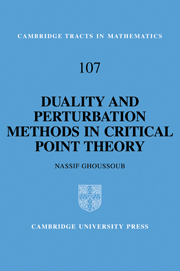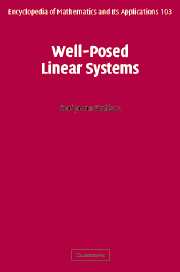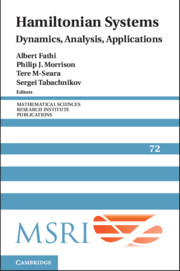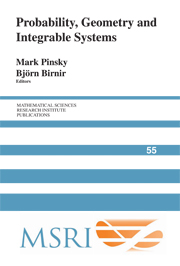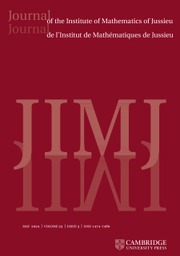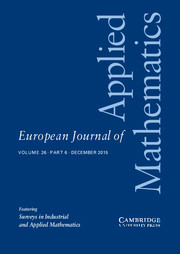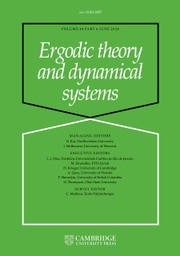Duality and Perturbation Methods in Critical Point Theory
Building on min-max methods, Professor Ghoussoub systematically develops a general theory that can be applied in a variety of situations. In so doing he also presents a whole new array of duality and perturbation methods. The prerequisites for following this book are relatively few; an appendix sketching certain methods in analysis makes the book self-contained.
- Subject is of wide interest
- Prerequisites are few even though subject is deep
Reviews & endorsements
"The excellent material presentation of this small book follows the tradition of the series." Jean Mawhin, SIAM Review
"...I recommend Ghoussoub's book to anyone working on variational problems, in particular on LS-theory. The reader will find a systematic presentation and detailed exposition of useful techniques." T. Bartsch, Bulletin of the American Mathematical Society
"...Each chapter ends with some historical notes and comments, which offer a very useful guide through the literature on the subjects mentioned." Maria Letizia Bertotti, Mathematical Reviews
Product details
August 2008Paperback
9780521071956
280 pages
228 × 151 × 18 mm
0.44kg
Available
Table of Contents
- 1. Lipschitz and smooth perturbed minimization principles
- 2. Linear and plurisubharmonic perturbed minimization principles
- 3. The classical min-max theorem
- 4. A strong form of the min-max principle
- 5. Relaxed boundary conditions in the presence of a dual set
- 6. The critical set in the mountain pass theorem
- 7. Group actions and multiplicity of critical points
- 8. The Palais–Smale condition around a dual set - examples
- 9. Morse indices of min-max critical points - the non-degenerate case
- 10. Morse indices of min-max critical points - the degenerate case
- 11. Morse-type information on Palais–Smale sequences
- Appendix
- References
- Index.

